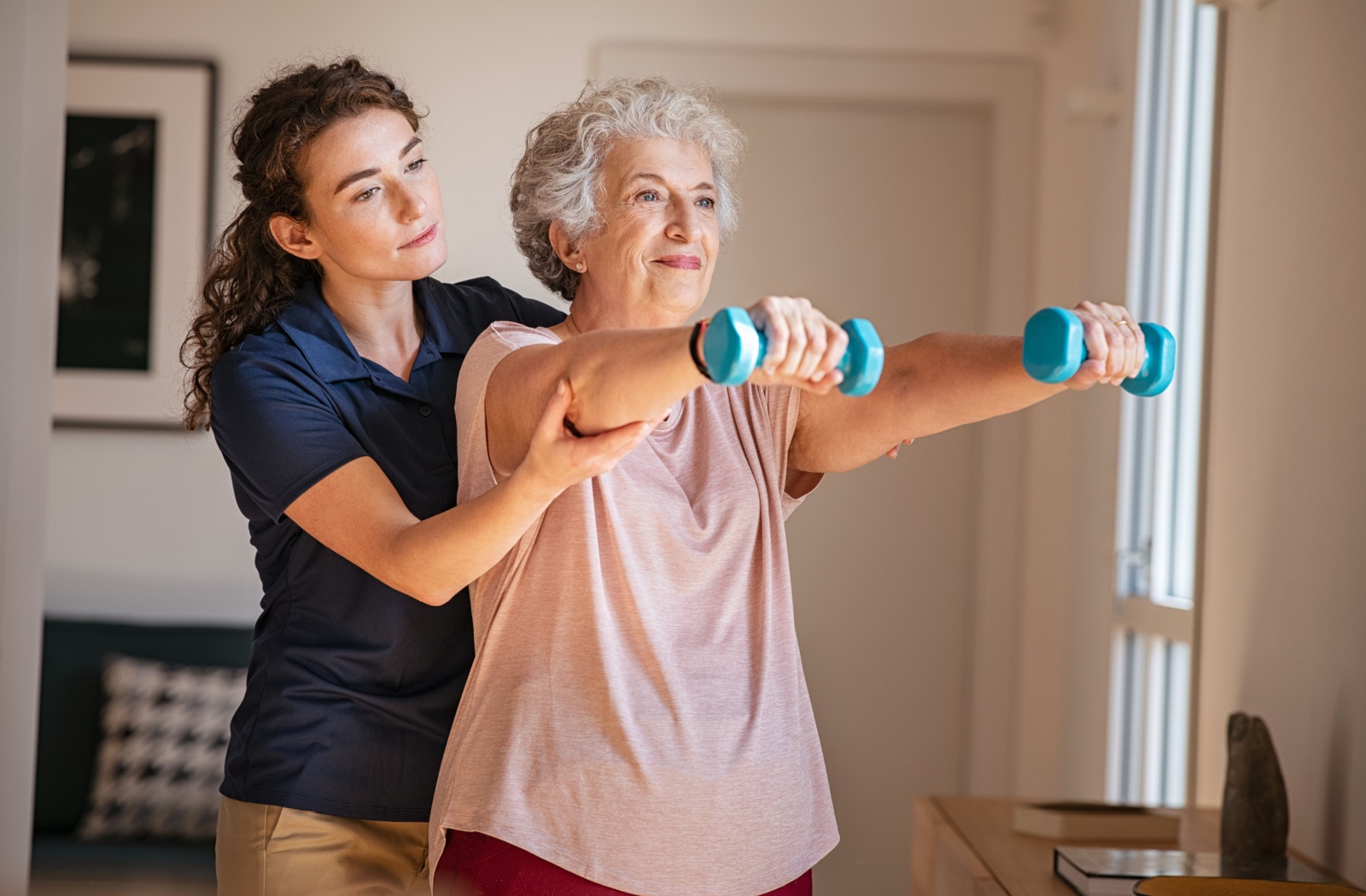Cognitive decline is a common age-related problem. This is a normal part of aging, though it sometimes indicates underlying health concerns. A healthy mind is closely linked with a healthy body, and it’s often easy to keep the brain healthy—and regular exercise and physical therapy play an important role here.
Good physical health helps people retain cognitive abilities as they age. It improves blood flow to the brain, reduces stress, and boosts overall brain health. Through physical therapy and exercise, a strong brain and mind are within reach!
The Link Between Physical & Cognitive Health
There is a strong connection between staying active and maintaining cognitive abilities. Exercise doesn’t just stimulate the body—it also challenges the mind. Regular movements steadily boost memory, focus, and mental clarity.
When seniors stay active, they support healthy blood flow to the brain. This reduces the risk of chronic inflammation and oxidative damage due to stress. Regular exercise is closely linked with all kinds of cognitive benefits, including:
- Improved memory retention
- Enhanced concentration
- Better problem-solving skills
- Reduced risk of cognitive decline
Exercise becomes more important with age—it’s a core part of preserving cognitive abilities.
The Basics Of Physical Therapy
Physical therapy is a personalized approach to exercise. It’s designed to help people regain or maintain their mobility, strength, flexibility, and balance. For seniors, this exercise practice can be extremely beneficial.
The human body undergoes significant changes over the years, and physical activities sometimes become a little harder. Physical therapy can help seniors preserve their abilities over the years and strengthen their bodies and minds. It’s an incredible boost designed to address a person’s unique situation through targeted exercises.
In physical therapy, each program is adapted to the person’s abilities and health goals. One person might focus on balance exercises to prevent falls, while another might work on flexibility for joint pain relief. Regardless of the specific exercises, physical therapy is a great way to start improving overall health and ability.
Does Physical Therapy Improve Cognitive Health?
The benefits of physical therapy aren’t just physical. The activities involved encourage the body and brain to work together. This can create meaningful improvements over time and steadily boost a person’s cognitive health.
Many of the actions within a physical therapy program, like learning new routines or focusing intensely, are incredibly helpful for the mind. They stimulate the brain and challenge it to work in new ways. This can eventually:
- Boost memory through synchronized movements that engage the brain.
- Reduce stress and anxiety, as movement encourages a calmer state of mind.
- Improve neuroplasticity, which supports learning and adapting to new challenges.
As your loved one works through their exercise routine, they’ll improve their overall cognitive health. This makes physical therapy an invaluable part of a proper health plan.
Tips for Preventing Cognitive Decline in Seniors
A healthy mind is often easier to reach than most people think—and all it takes is a well-rounded approach. Conscious decisions to prioritize overall health are key to a stronger mind. Simple, practical habits can make a big difference.
Diet & Cognitive Health
A balanced diet is the foundation of a person’s health and lifestyle. Nutrient-rich foods are incredibly helpful for the brain—they help the mind stay protected and strong. Some foods are particularly beneficial for cognitive health, like:
- Fatty fish
- Leafy greens
- Berries and other fruits
- Nuts and seeds
These foods contain antioxidants that protect the brain from damage. They also provide essential nutrients to promote cognitive function and overall brain health.

Mental Stimulation & Cognitive Health
Keeping the mind active is just as important as keeping the body active. The brain is like a muscle, and it becomes stronger with regular use. It helps to encourage older loved ones to challenge their mind regularly through activities like:
- Puzzles
- Board games
- Learning new skills
- Memory training
These can all help preserve cognitive abilities. They’re a great way to stimulate the brain and keep it functioning well.
Socialization & Cognitive Health
Staying socially connected isn’t just about having fun and connecting. It’s a critical part of cognitive health, and it plays a big role in a person’s brain functioning. It encourages thought, communication, emotional understanding, memory, and more.
Fortunately, staying socially connected is also easier than most people think. Your loved one can try:
- Joining a local club or community group
- Attending social events or gatherings
- Reaching out to friends and family regularly
- Participating in group activities like exercise classes or book clubs
- Volunteering for a cause they care about
These are all incredible ways to build new social connections.
An Active, Supported Lifestyle Awaits
An active life benefits more than just physical health. It keeps the brain strong, too! While physical therapy can make a significant difference, it’s just one piece of the puzzle.A supportive, vibrant community is one of the most important parts of a healthy lifestyle. And here at All American Assisted Living at Washington Township, we’re ready to help. Contact our team today to schedule a tour, and together, we can support your loved one in their journey to a healthier mind!





